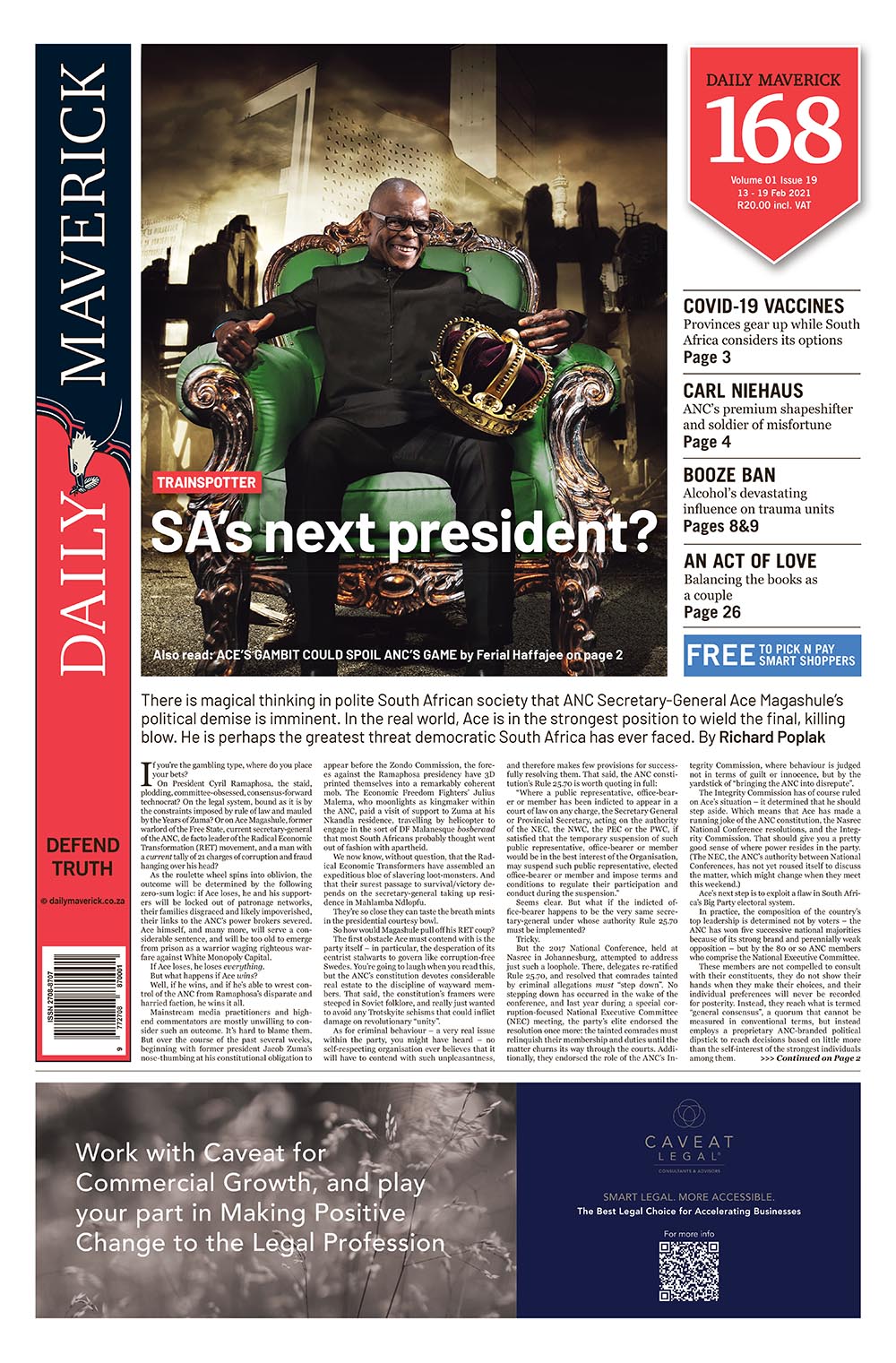First published in the Daily Maverick 168 weekly newspaper.
Advocates of the millennial retail traders on Robinhood and other apps who drove up the market capitalisation of GameStop 25 times to $25-billion have praised these young traders as “courageous”, as they sought to build on the work of the Occupy Wall Street campaigns by attacking evil hedge funds where it hurts most – on their home turf and within the markets themselves.
Yet this act of defiance against Wall Street is totally different. These Reddit traders from the group #wallstreetbets have taken some serious scalps and forced major losses, chief among them the hedge fund Melvin Capital, which had to be bailed out. Should we therefore be applauding this as justice being done against the greed of hedge funds?
Many other commentators, particularly those aligned with the interests of Wall Street institutions and the establishment, have decried the whole episode as deeply damaging, destabilising and indeed posing a real threat to the economy.
Political establishment figures have demanded that these retail traders be regulated and brought to justice. Interviewed on Bloomberg, John Paulson, the eponymous hedge fund billionaire, suggested that what hurts Wall Street inevitably hurts Main Street.
They argue that this type of co-ordinated action is nothing short of insider trading as they operate in organised cartel-type movements, with their crosshairs trained firmly on the greed of hedge funds.
Both interpretations, however, are likely to be somewhat overblown. These millennial traders are neither the saviours of finance, rescuing us from the profiteering greed of Wall Street, nor are they a major threat. As the episode has faded from the media and the stock prices of GameStop and other darlings of the Redditers have collapsed, this will not in all likelihood go down as a “Brave New World” of finance, when the little man from Main Street finally stormed the Citadel of Evil Greedy Wall Street.
It is more likely that this will all just go down in history as the last gasp of an unprecedented bull market that began with the financial crisis. We are now 12 years into an almost continuous stock market boom. Fuelled by bottomless free money in the form of record low interest rates and liquidity from central banks, leverage and gearing are now for everybody. Exacerbated by lots of time at home in lockdown and the new free trading apps such as Robinhood, markets have become accessible like never before.
It was only a matter of time before we saw something like this.
It is rather more useful to think of it as the allegorical shoeshine boy giving stock tips on steroids.
But there is a lesson to be learnt. Fundamentally, market inclusion is a good thing. For too long stock markets have been seen as the preserve of the wealthy.
This is simply not true. It should not just be Bitcoin that is seen as open for participants who are young and not your typical traders, but all financial markets. Such participation means that future markets will be less prone to distortions and abuse from the “insiders” such as hedge funds, which in many respects led us into the financial crisis in the first place.
Casino capitalism, itself a product of Wall Street, is also not good for Main Street and particularly not good for society. Opening up the markets to the young can only be a good thing.
South African regulators and markets such as the JSE would do well to take note. Not only are trading costs on South African markets some of the highest in the world, but the listed markets in SA seem to be dying a slow death as trading volumes hit record lows and delistings hit new highs. The JSE is seen by many to be dying.
South African financial institutions and regulators have a greater responsibility than any to ensure that the majority have access to what is seen as the preserve of White Minority Capital. If that is in the form of apps that the young can use for free, then so be it.
In what is commonly regarded as the most unequal society on Earth, only then will South African capitalism at least begin the task of making itself more relevant for all. DM168
This story first appeared in our weekly Daily Maverick 168 newspaper which is available for free to Pick n Pay Smart Shoppers at these Pick n Pay stores.


















 Become an Insider
Become an Insider
Comments - Please login in order to comment.